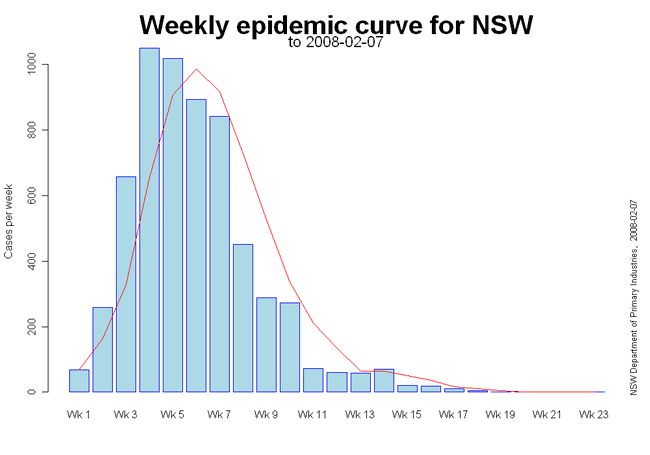 THE Equine Influenza (EI) epidemic has sullied the road to the Beijing Olympics for Australia's elite equestrian riders, but jumping such a hurdle would make victory even sweeter.
THE Equine Influenza (EI) epidemic has sullied the road to the Beijing Olympics for Australia's elite equestrian riders, but jumping such a hurdle would make victory even sweeter. Since last August, equine influenza (EI) has swept stables across New South Wales and Queensland, prompting a coordinated response from authorities and restricting horse movements.
About 150,000 horses were infected when the virus reached its zenith in October. Australia's chief vet Andy Carroll says that number has now dwindled to about 150.
Events on Australia's equestrian calendar have been erased, with Monday's dressage qualifier event in Sydney the first major event since August, 2007.
Equestrian Federation of Australia high performance manager, Brett Mace, said EI has brought the sport to its knees, with the lack of local competition forcing riders to move overseas and be away from their families ahead of the Games.
"There has never been anything like this," he told AAP.
"A lot of our riders are professional riders and most of them haven't had any income since August.
"Some riders in the team, their horses have had EI, which has thrown their whole season out."About one fifth, or six out of 31 horses, preparing for the Games - contracted EI but have now been given the all clear.
Mace said victory in Hong Kong - where the Olympic equestrian events will be staged with Australia a gold medal chance in team eventing - would be even sweeter after the struggle with EI.
"Given EI it is going to be a big effort by everybody to get to the Games," he said.
"The sacrifices will be even bigger because we have had to go overseas to get any competition."
The Australian equestrian Olympic team will be named on July 4. The equestrian will be held in Hong Kong from August 9-21.
Show jumping and dressage will be held at Sha Tin racecourse and the cross country will be at Beas River.
AAP















